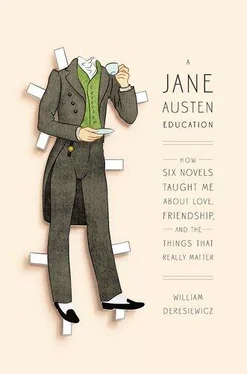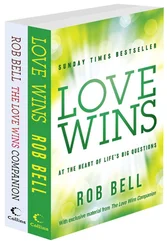I was in my late twenties, in other words, and still living like a college student. I was having trouble growing up—one of the reasons, in fact, that I’d gone back to school in the first place. I’d been out in the world for a few years, had had a couple of jobs, but I still hadn’t learned how to cope with life on my own. Simple things, like buying a bottle of shampoo, would make me catatonic with confusion. I’d stand there in the store with the bottle in my hand like a sleepwalker who had just woken up, wondering how I had gotten there and what I was supposed to do next. Yes, right, I would think. You’ve come in here because you need this. To wash your hair. Now go to the front of the store and pay for it.
If I was having trouble becoming an adult, it wasn’t a big surprise. As the youngest in a family of three kids—and the youngest by a lot, almost six years—I had always been treated like the baby. My mother was very loving and supportive—I was “her” child, the one who looked like her and reminded her of her own adored father—yet she also tended to infantilize me. But the more important presence was my father, the figure who dominated the household. Simultaneously demanding and undermining, he infantilized me without being loving and supportive. He expected everything, but he gave me the unmistakable message that he didn’t really think I could do anything.
In retrospect, it’s clear that he was haunted by a sense of financial and even physical insecurity. He and his parents had been refugees from World War II, having escaped from Europe—that is, from the Holocaust—at the last possible moment. Much of his family had not escaped, and although he had erased his Czech accent by sheer force of will, he was still profoundly marked by his early experiences. He never spent a dime he didn’t have to, never threw away so much as a paper clip. With us he was not only stern and withholding, a shouter and hitter who demanded top grades, he was also overprotective to the point of being overbearing.
He didn’t want his sons to take risks or explore options or strike out on our own; he wanted us to follow the plan that he’d laid out for us: major in science—he was an engineer himself—go to medical school, and start earning a living as quickly as possible. Don’t waste time, don’t get distracted. The world was a dangerous place, and the fewer wrong turns you made, the better. He’d figured out what you needed to do to ensure yourself a secure life, and there was no point in our figuring it out all over again for ourselves.
When my father saw me struggling with something—whether I was ten and having trouble opening a jar or fifteen and trying to write a paper—he would rush in and take care of it instead of letting me work things out on my own. His intentions were good; he wanted to save me the pain and trouble of floundering around until I got it right. “I’ve already made those mistakes,” he would say. “I want you to learn from my experience.” But his strategy overlooked the fact that he wasn’t always going to be there to take care of me. So I never learned how to look after myself, how to deal with salespeople or handle money, how to make my own way in the world. There I was, twenty-eight years old and still staring at the shampoo.
I hadn’t helped myself by going back to school at Columbia. My father was on the faculty, and because it had been free for us, I had already gone there for college. I could have gone to Chicago this time, but the prospect of moving to an unfamiliar city, hundreds of miles away from almost anyone I knew, was not something I could even begin to imagine. So there I was again, back in the same old place, living in an apartment that was practically around the corner from his office.
I’d drop by every once in a while, and he would take me out for Chinese food. He wasn’t very happy that I was studying English—he figured he would wind up supporting me for the rest of his life—and we would struggle about it over the chow fun. “If I had my own business,” he would say, “I would offer to take you in. But you wouldn’t do it anyway!” I’d remind him that that was exactly what had happened between him and his own father, who had owned a little business in the Garment District (my father hadn’t wanted to sell zippers any more than I wanted be a doctor), but it didn’t cut much ice.
The fact is, he never thought I’d get through graduate school. He hadn’t even thought I’d get in to graduate school. Whatever the next challenge was, he was sure I couldn’t meet it. After all—the logic was perfectly circular—hadn’t he always had to help me out with everything? He didn’t think I’d make the cut after the first year, and because I’d gotten C’s in high-school French—he spoke six languages himself—he was sure I’d never complete my language requirements. “I appreciate the support,” I’d say, and then I’d thank him for lunch and head back to my crummy apartment.
I was living in that apartment when I read Emma and broke it off with my girlfriend, and I was still living there a year later when I read my way through the rest of Jane Austen. It was the summer after my third year in graduate school. I had finished my courses (and yes, completed my language requirements), and now I was studying for the dreaded oral qualifying exams, which I would have to take that fall. It was the ultimate academic endurance test. I had four months to read about a hundred books, and then I’d be shut in a room with four professors who would grill me about them for two hours. It was also a rite of passage. Once I got through it— if I got through it—I’d be one step closer, in professional terms, to growing up and becoming one of those professors myself. (My father, of course, was sure I’d never pass. “You have your work cut out for you!” he said.) As for growing up in any other sense, I still didn’t see that I might have a problem.
I had the place to myself that summer—the second of the business students, a rich preppy from Dartmouth, had cleared out for nicer digs—and I read from the time I got up until the time I went to sleep. I read while I was brushing my teeth, I read while I was eating my ramen noodles, I even read while I was walking down the street (which takes a fair amount of coordination, I discovered). And one of those days, about halfway through the summer, I very suddenly, and very unexpectedly, fell in love.
The object of my infatuation, of course, was Elizabeth Bennet. Why should I have been able to resist the heroine of Pride and Prejudice any better than anyone else? She was the most charming character I had ever met. Brilliant, witty, full of fun and laughter—the kind of person who makes you feel more alive just by being around. When her older sister, Jane, was gushing that a certain new acquaintance was “just what a young man ought to be,” “sensible, good-humoured, lively,” Elizabeth dryly replied, “He is also handsome, which a young man ought likewise to be, if he possibly can.” Yet Elizabeth was also strong and openhearted and brave, the devoted friend who’d protect you like a lioness. When Jane got sick while visiting some wellborn friends at a nearby estate, Elizabeth thought nothing of tramping three miles through the mud to take care of her—and didn’t give a damn if her sister’s friends thought it made her look déclassé to do so.
Like me, Elizabeth had a difficult family to deal with. Jane was a dream—sweet, kind, patient, the perfect confidante. But their three little sisters were impossible. Mary, the middle girl, was a pedantic bore who got all her ideas from books (“Vanity and pride are different things, though the words are often used synonymously . . .”). Kitty and Lydia, the youngest two, were empty-headed flirts. Their father was a clever man—I sat up a little straighter every time he opened his mouth, and his relationship with Elizabeth was fun and playful—but he spent most of his energy sparring with their ridiculous mother, an overwrought bundle of foolishness. The two of them were like a long-running comedy act, and all the worse because they knew it. “You take delight in vexing me,” Mrs. Bennet complained. “You have no compassion on my poor nerves.” “You mistake me, my dear,” her husband shot back. “I have a high respect for your nerves. They are my old friends. I have heard you mention them with consideration these last twenty years at least.”
Читать дальше












